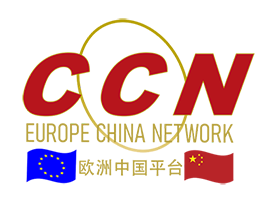SOCIAL SOLIDARITY INCOME
The national roll-out of the “Social Solidarity Income” scheme in Greece
Description Since February 2017, Greece has been applying, for the first time on a nationwide basis, a general minimum income scheme: the “Social Solidarity Income” (SSI).
This is a variation on the 6-month pilot “Guaranteed Minimum Income” scheme which was implemented from November 2015 to April 2016. In May 2016, a new Law (Law 4389, article 235) provided for gradual national implementation of the SSI. Its first phase was launched in midJuly 2016 and lasted until 31 December 2016, covering 30 selected municipalities and benefitting about 48,000 households (i.e. approximately 120,000 persons).
The national roll-out of the SSI scheme, which constitutes the second phase, began in February 2017 and is now fully implemented. The SSI is addressed to households living in extreme poverty and is based on three pillars: i) income support; ii) access to social services and goods; and iii) provision of support services for (re)integration into the labour market.
It is a means-tested scheme, requiring the beneficiaries to be legal and permanent residents of the country and to fulfil specific income and property criteria, depending on the size and composition of the household. For example, for a single-person household, the total gross income (before taxes but excluding social contributions) obtained during the six months preceding the submission of the application should not exceed €1,200, while the total property’s taxable value should not be over €90,000.
The above amounts are increased for each additional adult and dependent child in the household. As long as all these conditions and criteria are met, the SSI scheme covers all people, irrespective of whether they are in employment or are out of work. The financial benefit is set at €100 per month basic support per household unit, plus a proportional amount set at €100 for every adult and €50 for every dependent child in the household (with the exception of single-parent households, where the amount for the first child is set at €100).
The maximum monthly amount of the benefit cannot exceed €900, irrespective of the household’s composition. The total monthly amount of the income support that a person/household can claim depends on the size and composition of the household and on the household’s gross income.
The final monthly amount provided to every eligible person/household is the difference between their gross income and the “threshold income” (i.e. the sum of basic support and proportional amounts) which has been fixed for each household type. The SSI scheme is quite similar to the 6-month pilot “Guaranteed Minimum Income” scheme which was implemented in 2015-2016.
The onlynotable changes are the inclusion of homeless people in the eligible population (provided they are registered with the municipal social services) and the obligation for those beneficiaries who have not completed compulsory education to enrol back into education and also to certify that all minors in the household attend formal education.
In addition, in contrast to the pilot scheme, SSI beneficiaries who are entitled to a monthly benefit equal to or greater than €100 do not receive the entire amount in cash, but only 50% of the total amount. The rest can be spent exclusively through the use of a prepaid bank card that can be used by the beneficiary for any purchase, including electronic payments.
According to official statistical data, in June 2017 246,529 households (i.e. 559,621 persons) are SSI beneficiaries, representing a total expenditure of approximately €55.6 million. Outlook & commentary The implementation of a national minimum income scheme (the SSI), which has been long awaited in Greece, is a positive development. Moreover, the fact that the income support pillar of the scheme is linked to the other two pillars of the active inclusion policy (namely inclusive labour markets and access to services) makes it conducive to acting as a social safety net against poverty and social exclusion. On the other hand, in practice, the main focus so far has been placed on the first pillar and the links with the other two pillars remain weak.
It should be pointed out, however, that the SSI scheme entails very strict eligibility criteria on income and property, which, in turn, make it inaccessible to many poor and excluded persons/households. In other words, although this scheme may constitute a kind of social safety net, it covers only the most deprived. Besides, the level of income support (€200 per month for a single-person household) is grossly inadequate (much lower than the regular unemployment benefit which currently stands at €360 per month) and, thus, it can hardly guarantee a dignified standard of living.
Overall, although it is highly welcome, the SSI scheme falls short of guaranteeing a way out of poverty. It cannot really be expected to contribute to a drop in the total number of poor and excluded persons. Instead, it is expected to have a positive impact on the poverty gap by reducing the number of those furthest away from the income poverty threshold.
In order to increase its impact, proper mechanisms and arrangements should be put in place to ensure better links between the income support and the other two pillars of the SSI scheme. Another high priority for action should be the establishment of permanent monitoring and impact assessment mechanisms for the scheme.






















